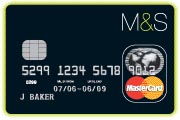PRAGUE, Czech Republic, May-10-2018 — /EuropaWire/ — 2018-2019 may be called the era of cryptocurrency regulation. After we’ve followed ICO success stories in 2016-2017, in the next 1.5-2 years we will observe various countries bringing cryptocurrencies and related processes, such as ICOs and smart contracts, out into the legislative framework.
Worldcore international company has comprised a rating of countries according to the stringency of their cryptocurrency regulations. It starts with the countries where cryptocurrencies are entirely banned, followed by those states where cryptocurrency circulation is not merely significantly restricted, but also criminalized in the framework of the national financial legislation.
Thus, there are currently four countries in the world where residents may end up in prison for several years for any cryptocurrency transactions.
- Nepal
- Bolivia
- Bangladesh
- Algeria, a recent addition to the list.
Besides the countries with criminalized cryptocurrency trade and ownership, there are numerous countries where a national ban has been imposed on specific types of cryptocurrency transactions. The degree of regulation in this sphere varies notably — from a ban on using cryptocurrency as legal tender (common in countries that have not legalized free cryptocurrency circulation) and to a complete ban on exchanges and ICOs in China (which enterprising Chinese enthusiasts forego by launching hard forks of popular currencies as ICOs and trading on foreign exchanges). Here’s a list of these states:
- China (ban on ICO, buying and selling cryptocurrency, advertising)
- India (since April 2018, the Central Bank of India has forbidden buying or selling cryptocurrency; cryptocurrency also isn’t recognized as legal tender)
- Russia (when cryptocurrency market regulation legislative proposal comes into effect, it will limit the legal annual transaction volume to 50,000 rubles for unqualified investors; allow purchase and sale exclusively on registered national platforms, provide for full participant de-anonymization; mining will be considered an entrepreneurial activity with mandatory sale of the mined assets on national exchanges; cryptocurrency/crypto-token will be recognized as a digital asset, but not legal tender). Cryptocurrency advertising is forbidden on certain platforms (i.e. Yandex).
- Vietnam (stringent national anti-money laundering regulations; gradual legalization is planned starting in August 2018)
- Indonesia (a ban on purchase and sale of cryptocurrency)
- Thailand (in February 2018, the Central Bank of Thailand has forbidden five key transactions with cryptocurrencies to financial institutions: investment, trading, establishment of cryptocurrency platforms, using credit and debit cards to purchase currency and consulting people on cryptocurrency investments).
- Kyrgyzstan (cryptocurrency is not recognized as legal tender, liberalization of regulations is currently under consideration)
- Ecuador
- Iceland (under the umbrella prohibitive currency regulation)
- Morocco
- Malaysia
“In the countries that have restricted cryptocurrency circulation and mining, it primarily involves cryptocurrency as a digital asset coming under the restrictions of investment or money laundering regulations. Perhaps, these states will address the issue of cryptocurrency regulation later, when the more developed countries establish adequate legislation and provide positive examples of regulation and taxation. Another aspect of the ban, i.e. in China or Ecuador, is the clearing out of the competition prior to launching a national cryptocurrency. Many countries today are implementing a partial, rather than a full ban on cryptocurrency. In case of cryptocurrencies, governments understand that it is impossible to ban them entirely. With regard to the globalization of economy and distributed registry technologies, which form the foundation for cryptocurrencies, a complete ban will lead not only to the migration of financial assets and mining farms out of the country, but also to the departure of startups outside the country’s jurisdiction, startups that could have become taxpayers in the presence of supportive regulations,†believes Alexey Nasonov, the founder and CEO of Worldcore.
SOURCE: EuropaWire









